
HORIST: GOP bad, Democrats worse
We hear a lot of how the people are unhappy with the federal government – and well they should be. However, there is not a lot of public discourse over the specific reasons. It is important to understand the pervasive sense of failing because we will soon have another opportunity for a course adjustment. It is called an election.
What are those public and political institutions that have been losing the confidence of the American public, and more importantly, why?
The Republicans
Perhaps the greatest disappointment is with the Republicans because they have been entrusted with the most power. Since 2010, the party of Lincoln has been given control of the House of Representatives, the Senate, the White House, two-thirds of the governorships, two-thirds of the state legislatures and potential control of the Supreme Court.
The GOP is also within five Senate seats of a supermajority, meaning that the Democrats – in the absence of a filibuster — would have zero relevancy as a national party. They would be relegated to a bicoastal regional party. Their very existence as a national voice would be dependent solely on their life-support system known as the elitist liberal media.
Rarely has an American political party garnered so much in-depth power, and never has it been to such limited success. The primary problem is that too many of the newly empowered Republican leaders seem to view their success as an exchange of offices without a change in procedures and policies. Other than a few legislative tweaks here and there, it has been business as usual.
The Republicans suffer from three problems that impede progress – division in the ranks, weak leadership and no commitment to the principles that gave them the majority. The failure to repeal and replace the Affordable Care Act (ACA), otherwise known as Obamacare, was the first warning of weakness.
Republicans promised to restore order and common sense to the grossly destructive budgeting process known as Continuing Resolutions. Rather than serious and responsible budgeting, the GOP has continued funding the government with a single omnibus bill that lends itself to reckless spending for political purposes. The current example, with its $1.3 trillion deficit is worse than any produced when the tax-and-spend Democrats controlled the process.
The Republicans also have another problem – knowledge and appreciation of the successes they did produce, mainly due to an enormously biased news media. The most notable example of this was the mendacious reporting on the across-the-board benefits to the average taxpayer.
Despite all this weakness and dishonorable compromises, The GOP did have some success and still embraces a limited government belief that stands apart from the Democrat platform of more taxes, more spending and more regulation.
The Democrats
When looking at America through the lens of the Democratic Party, we see undeserved successes, not based on the broad national popularity of their left-wing platform, but on their ability to use lockstep unity to obstruct the GOP. Their current gain in popularity is not due to the popularity of their liberal policies, but in using their decided propaganda advantage with the elitist press to obstruct policies and slander Republican GOP politicians. The challenge of the Democratic Party is to win votes DESPITE their platform of liberal policies and the unpopularity of many of their current leaders.
Since the 2018 presidential campaign, Democrats have focused on personalities rather than policies to curry public favor. In an ironic turn-about, the focus on personality may have been a factor in the Democrats’ ten-year slide to the precipice of irrelevancy. The Party and the media focused on the positive personality traits of President Obama in the hope that it would trump the unpopularity of liberal policies. They may have been correct in using it to attain and retain the White House over the course of eight years, but they seemed oblivious to the “shellacking” (Obama’s word) that the Party was taking at all other levels of government.
If Republicans have been ineffective in enacting their policies, the Democrats have been ineffective in selling theirs. The solidarity of the Democratic Party extends to policies – which means that they are solidly behind policies the public largely rejects. While the Democrats and their media allies proffer the narrative that the GOP has been captured by the extreme right, the public understands that it is the Democrats that have been taken over by the extreme left. For better or worse, Republicans have feuding factions while the Democrats demonstrate a high degree of dogmatic discipline.
The Media
While it goes unreported for obvious reasons, the credibility of the national media is at a well-deserved all-time low. While the elitist liberal press uses their platforms to bellow its importance to the Republic and its objectivity in reporting the news, most of the American public sees through the self-serving claims. Flyover America sees the incestuous relationship of the Big Seven (ANC, CBS, NBC, CNN, MSNBC, New York Times and Washington Post) that exists within the New York City/Washington D.C. bubble. To gauge the popularity of left-wing media, one only needs to look at the ratings.
Individual programs rely on advertising revenues and advertising revenues depend on audience. If one were to wonder why FOX News swamps the ratings of CNN and MSNBC, or why there are so many conservative talk shows compared to liberal, it is because the American public “votes” with that dial.
The liberal network, Air America, crashed and burned. To combat the popularity of Rush Limbaugh, they launched a show featuring two of the Democrats’ more well-known personalities, former New York Governor Mario Cuomo and former Texas Governor Ann Richards. It bombed. Subsequently, the Democrats attempted to breathe life into the old Phil Donahue Show –that had once been popular. But, no more. Doctrinaire liberal media personalities, such as Bill Maher, Chris Matthews, Rachel Maddow, Mika and Joe Scarborough, Larry O’Donnell and a bevy of YouTube ranters, have been forced to seek safe harbors within the lower-rated communications outlets.
The public no longer sees the media as the provider of news in an objective fashion, but rather purveyors of partisan propaganda. The tradition of confining opinion to the editorial pages has given way to drowning hard news under a sea of editorial commentary, conjecture, hypothesis of a one-sided nature. This may well explain why more and more Americans say they receive most of their news content from social media. As unreliable as it is, it still trumps traditional news platforms.
The President and the presidency
In evaluating President Trump, it is necessary to view the President as the person, but also the presidency. An administration is far more than the President, himself.
Most Americans are turned off by President Trump’s pugnacious personality, his seemingly irrational judgment, at times, and his propensity to say things that are just not accurate – sometimes self-congratulatory exaggerations, sometimes hyperbole, sometimes mistakes and sometimes what can only be described as lies.
During my days as a political consultant, I developed what I called a “credibility analysis” to determine how a candidate’s statement would be received by the general public. I have subsequently lectured on the subject. In politics – and in most every facet of life – it is not what one says that is critical, but what the listeners believe. In my lectures, I would now use Trump as a leading example of not defending one’s credibility. It can be expected that Democrats would seek to undermine Trump’s (and the Republican’s) credibility – and they are very good at that. Even though Trump has spent decades managing his own brand, it has been in a world where fantasy more than reality determines the brand. Trump is clueless in protecting his public image in the political realm.
Trump’s saving grace – and what may well keep him from an impeachment – is that the policies of his administration remain generally popular. But it is the level of unfulfillment that has put the fate of the GOP in 2018 in question. The majorities in the House and Senate are falling short of implementation. They should have been able to end Obamacare, pass DACA, fund border security (a form of THE WALL), been down the line on infrastructure and have a lot more judicial and political appointments in place.
Trump’s greatest and most enduring accomplishments are most likely the least obvious – at least to those least affected. This has to do with dramatic changes being made in every department of the federal government – most notably the enormous number of regulations being amended or ended. This is where the rubber meets the road in terms of the power of the administrative state. The so-called Deep State is the swamp Trump is draining.
The administration is restoring land rights previously assumed by the federal government. Much of the politically correct nonsense is being expunged from the public sector. School choice is advancing. Most Americans have a favorable view of Trump’s foreign policy.
It must be said, however, that much of the angst in the body politic has to do with Trump’s non-traditional and eclectic style – chaos as his adversaries see it. It cannot be denied that the number of investigations – even in the absence of evidence of wrong-doing by the President — and the proliferation of personal scandals that have been hyped beyond their importance are wearing down public confidence.
2018?
So, what does all this mean for the election of 2018? We can only speculate. Anyone who follows politics knows that anything can happen and that the 7-plus months between now and Election Day is a political eternity. The confidence of the Trump haters and the optimism of the Trump base are meaningless. They only provide speculative chatter grounded in strident partisanship.
It all depends on what the definition of “if” is. IF evidence of conspiracy is proven, IF Trump is caught in some prosecutorial “perjury trap,” or IF some former campaign folks give Special Counsel Robert Mueller a reason to indict Trump. The Republicans could lose control of the House and Senate – which more than likely would lead to a prolonged impeachment battle.
On the other hand, IF the investigations vindicate Trump (or even drag on as they have so far), IF North Korea enters into a denuclearization agreement, IF the DACA folks are provided with permanent status, IF the economy continues to soar and IF Trump can stop shooting himself in the foot, the Democrats will again see the prize of power escape them yet again.
In many ways, 2018 may be like 2016, in which the electorate will shove aside the political smoke screens, ignore the Presidents peccadillos and maintain the voters’ desire to repel the hardcore liberal policies again promised by the Democratic Party. The people could decide that the only way to end chaos and the gridlock is to give Republicans that last measure of authority – the supermajority.





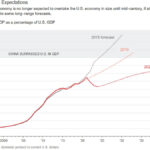





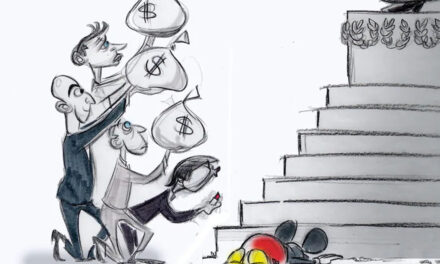
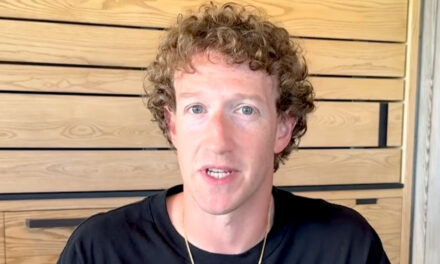


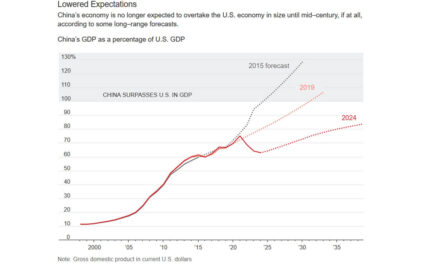
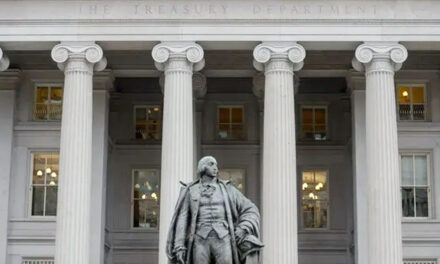








Joe Gilbertson: where are you going with these threats? My free speech is facing intimidation, sometimes physical threats. Is this…
NOT BUSTED. You didn't have to say it. That is what I meant in the above post from me. But…
Just another ruse for taking jabs at Biden through alleged short comings of his. Ten days remaining in Biden's term…
I never said I WANT China to continue to own Panama. You made that up. First,I didn’t say it. Second.…
I absolutely do Not in any way, shape or manner fabricate ANYTHING you say. I do and will always tell…